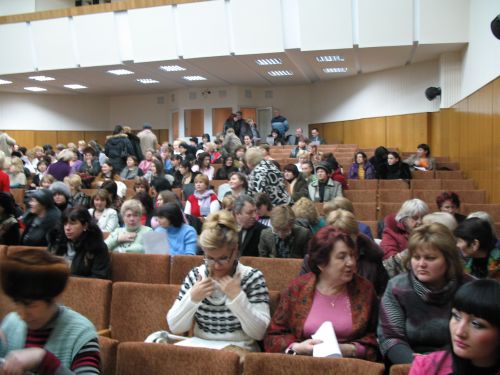
The female trade unionists will celebrate March 8 by picketing the state institutions because, as they say, they are sick and tired of poverty and troubles. The announcement was made in the General Assembly of the Women's Organization of the National Confederation of Trade Unions of Moldova, Info-Prim Neo reports.
The female delegates adopted a resolution that will be submitted to the Government. “We are indignant that the situation worsened after January 1. The prices of all the products and services increased. In the election campaign, the authorities had the slogan “Moldova without poverty”, but now they do nothing. If we are not heard this time again, on March 8 we will protest as we cannot keep silent anymore,” said Daria Bostan, head of the Women's Organization of Agriculture Trade Unions.
“We want allowances and higher salaries and pensions. In agriculture, the women work for 45 years and then receive a pension of 380-400 lei. The pension in agriculture represents 17% of the salary, while in public administration - 75%. The percentage should be the same for all,” said Daria Bostan.
Nadejda Rusnac, head of the Board of the Light Industry Trade Unions, said the country experiences extreme poverty. “The state should take care of the people's health. There must be created workplaces. The salaries and incomes of the population should be increased. We plead for equal rights for all the participants in the public social insurance system,” she said.
Oleg Budza, president of the National Confederation of Trade Unions, said the women are most seriously affected by the problems confronting the country. “We consider that the women should enjoy equal chances. We, the men must admit this problem. The women have the right to take part in administration and decision making,” Oleg Budza said, adding that the unionists are dissatisfied with the memorandum signed by Moldova with the IMF, especially because there will be compulsory redundancies in 2011-2012.
The National Confederation of Trade Unions of Moldova brings together over 500,000 members from 29 trade union organizations.

